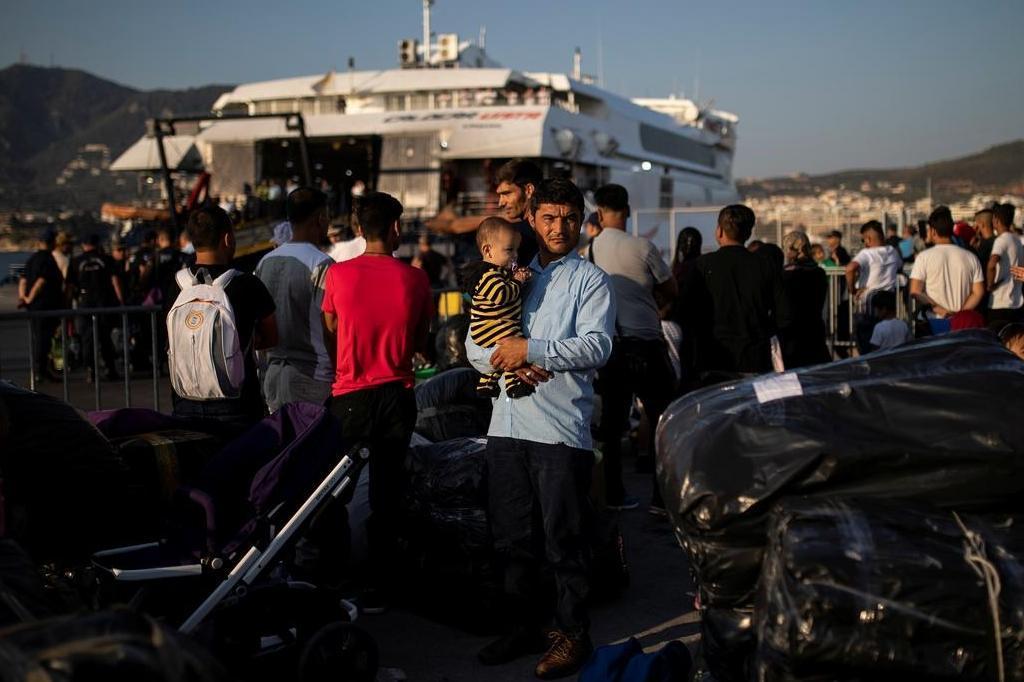
Migrants from Afghanistan wait to board a catamaran that will transfer them to the mainland, in Mytilene (Midilli) on the island of Lesbos, Greece. (Photo: Reuters)
The Greek parliament has passed a controversial new asylum law early on Nov. 1 aiming to control the number of migrants entering the country.
The bill aims to ease the pressure on the Eastern Aegean islands by speeding the procedures needed to return migrants to Turkey who do not meet the requirements to be granted asylum.
It was backed by ruling New Democracy MPs and the Movement of Change party.
Coalition of the Radical Left (SYRIZA), the Greek Communist Party (KKE), Greek Solution and Mera25 voted against the law.
The voting came after a tense debate between Greek Prime Minister Kyriakos Mitsotakis and opposition SYRIZA leader Alexis Tsipras.
“The asylum law gives a clear message: Those who know they do not merit asylum but try to enter and stay in our country will no longer be tolerated,” Mitsotakis said.
The Greek premier has vowed to take a much stricter stance than the previous leftist SYRIZA government and has promised to deport around 10,000 migrants by the end of 2020.
The situation however on Greek hotspots is dramatic according to several human rights organizations.
Since the beginning of 2019, 53,462 asylum seekers have reached islands in the Aegean Sea from Turkey, compared to 42,010 during the same period in 2018, Human Rights Watch has said.
The situation on the Greek islands, where 34,400 women, men, and children are trapped in abysmal conditions, has reached a crisis point, the organization said.
Earlier, Dunja Mijatovic, commissioner for human rights at the Council of Europe, said on Oct. 31 after visiting camps on Lesvos and Samos islands that the situation was dramatically worsened and expressed her concern on the bill that it could lead to human rights abuses, describing the situation as "explosive".